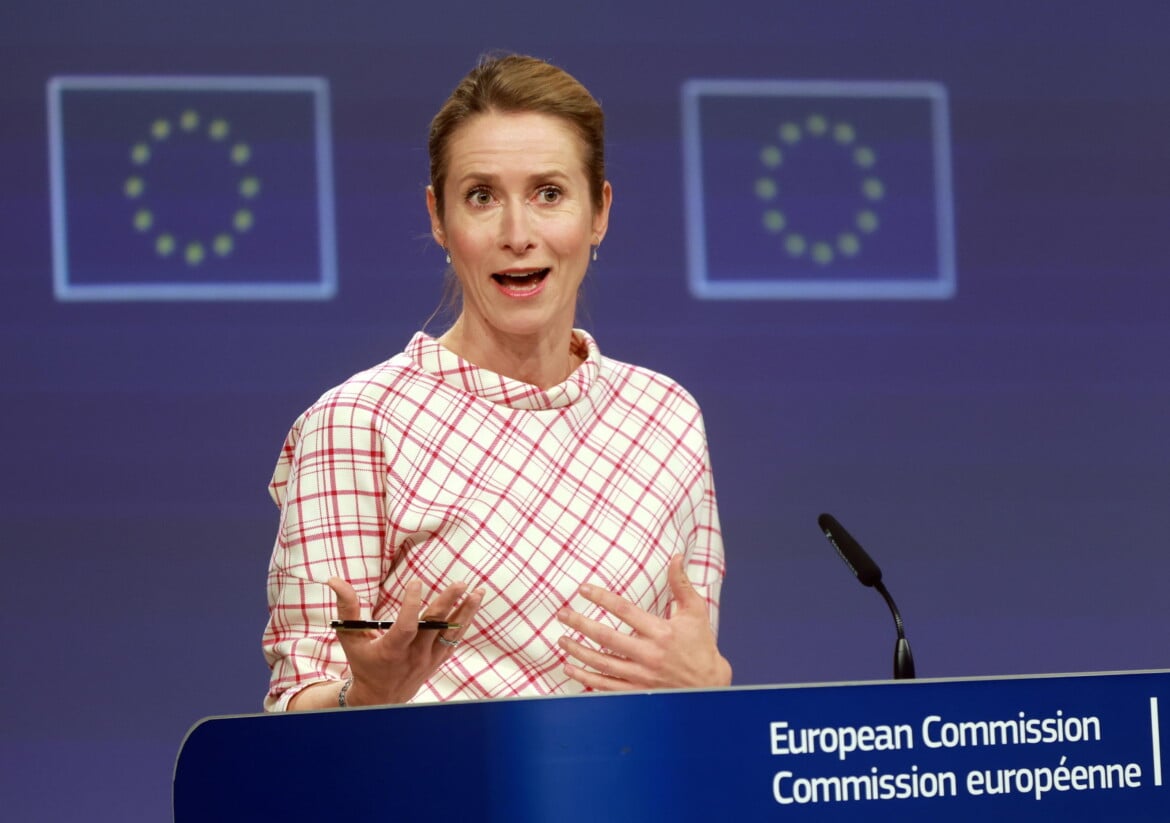Analysis
EU finally holds out sanctions against Israel – now it’s up to the states
Faced with the tragic military escalation and pressed by large segments of European public opinion, the Commission needed to send a signal.

The European Commission has unveiled a package of measures against Israel, with the aim of curbing the military operation in Gaza, now at a very advanced stage, and the repeated violence of the occupation in the West Bank. The core of the package consists of proposals that will require approval from the member state governments, which are notoriously divided on Gaza and on how to deal with the Netanyahu government in general. The member states remain split, as EU foreign policy chief Kaja Kallas has again admitted, and she had little optimism to offer about finding common ground in the future.
The measures now under consideration by the 27 member states include suspending the trade component of the EU-Israel Association Agreement, blocking funds for the Horizon research program and imposing individual sanctions on the two most extremist ministers in Netanyahu’s government: Smotrich and Ben-Gvir. The measures do not directly target the Israeli prime minister, despite the outstanding International Criminal Court arrest warrant against him. Mediterranean Commissioner Dubravka Šuica assured that the EU executive is able to act autonomously on at least a portion of its economic relations with Tel Aviv by freezing bilateral aid, specifically contracts with Israeli counterparts worth €9.4 million.
This is a small step, while the reintroduction of tariffs on Tel Aviv would be far more significant, if the partnership agreement was suspended. Trade Commissioner Maroš Šefčovič explained that new tariffs would affect 37% of Israeli exports to the EU, Tel Aviv’s main trade partner, valued at €5.8 billion. Chemicals, machinery, and weapons and their components are excluded from the tariffs under World Trade Organization rules.
Progressive forces in the European Parliament, led by the Left and the Greens, have long called for a halt to the arms trade with Israel, but the issue is far from straightforward, at least from a technical standpoint. First, as Šefčovič clarified, “Military cooperation is an exclusive competence of the member states.” Second, the sector benefits from a “confidentiality clause,” which prevents the disclosure of the exact value of the arms trade between the EU and Israel, a European official explained.
Šefčovič said he was “disappointed” with Tel Aviv for things having reached this point, while describing the measures as “appropriate and proportionate.” Faced with the tragic military escalation and pressed by large segments of European public opinion, the Commission needed to send a signal. Commission President Ursula von der Leyen spoke in no uncertain terms, declaring that “the horrific events taking place daily in Gaza must end.” She called for an “immediate ceasefire, unrestricted humanitarian access into the Strip,” and the “release of all hostages held by Hamas.”
For once, the German leader did her part, tossing the hot potato into the hands of the EU governments. The blame for inaction could now fall on those who block the measures – perhaps Rome or Berlin. The latter, through a spokesperson for Chancellor Friedrich Merz, said it was still undecided, including on the sanctions against ministers and settlers.
Von der Leyen did succeed in angering Tel Aviv, which was not a difficult feat and likely a calculated risk. Israeli Foreign Minister Gideon Sa'ar took aim at the Commission president, labelling the EU executive’s actions “morally and politically distorted” and threatening an “appropriate response.” Nevertheless, Tel Aviv is confident that this won’t be necessary, assuming its quarrelsome European partners will end up scuttling the whole initiative – doing Israel’s dirty work for it from inside the EU.
Originally published at https://ilmanifesto.it/israele-ecco-le-tardive-sanzioni-ue-ora-tocca-ai-governi-dei-27 on 2025-09-18
